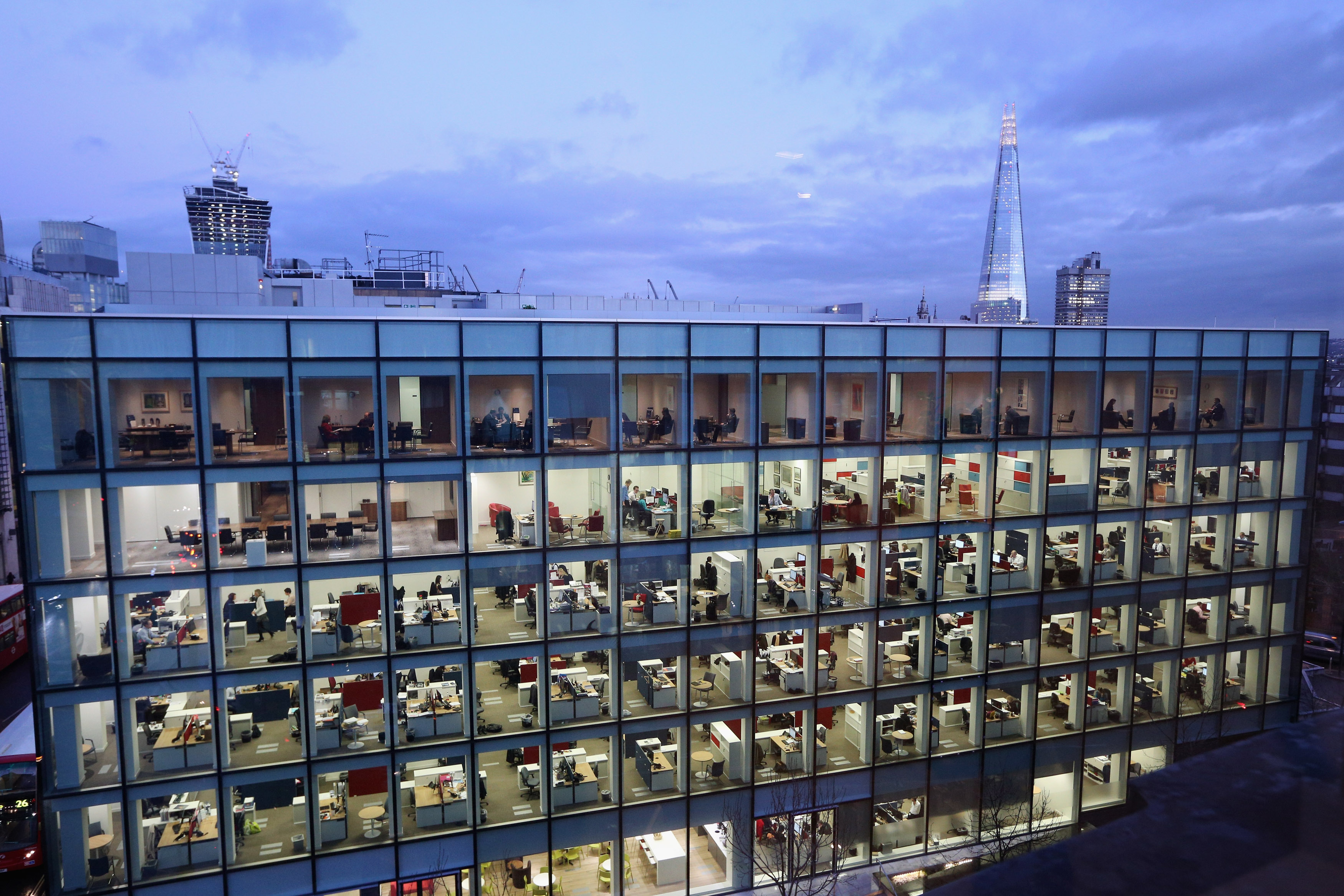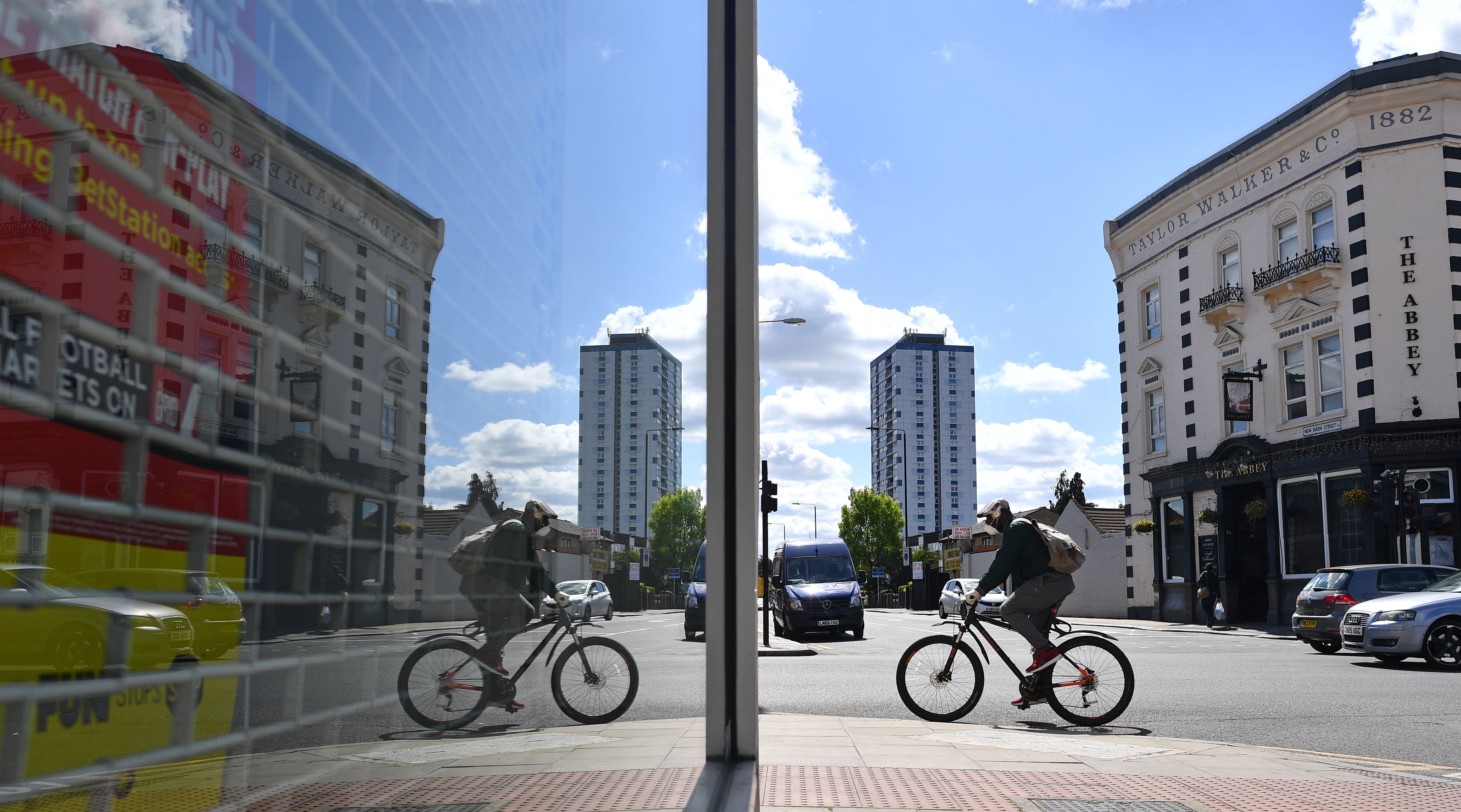When lockdown begins to end, non-essential shops will start to reopen and factories will gradually get back to work, while maintaining sensible distancing. But for the deskbound, not much will change.
Unlike pubs, restaurants and non-essential retailers, offices were not closed by government decree. Instead, since late March, the government has been encouraging those who can work from home to do so. Guidance is expected to be issued on how to work safely in offices; the main thrust is expected to be, for now, not to.
- Contact tracing: How the Isle of Wight track-and-trace app trial will work
- What we know about when the UK might end lockdown
- Lockdown ‘should continue’ for elderly and those with pre-existing conditions
- Coronavirus travel: Whether summer holidays will happen this year
- How to get a Covid-19 home test kit, and who is eligible to apply
A few will start to return. Those who need better IT support and faster broadband than they have at home will be back sooner. Banks expect traders to work from either their normal offices or from disaster-recovery sites.
Charlie Rudd, chief executive of Leo Burnett, an advertising firm, reckons design and production staff will be among the first back: “When you’re dealing with big files of high-quality material domestic Wi-Fi is not great”.
Change in workplace culture

But for now, the numbers are likely to be small. Nicolas Aubert, head of British operations at WillisTowersWatson, an advisory firm, says that “it’s going to be a very small percentage of our population, we believe that is going to be roughly 25 per cent for six to nine months”. And many bosses predict that the pandemic will lead to a step-change in homeworking and the demand for office space.
According to the Office for National Statistics around one in 20 workers did their jobs mainly from home in December 2019. Thanks to faster internet connections, the number is edging up.
Chris Grigg, the chief executive of British Land, a property company, notes that the car parks near rail stations in commuter towns are already emptier on a typical Friday than in the rest of the week.
Will Gosling from Deloitte, a professional-services company, believes the pandemic has brought about a “five-year acceleration” of a trend that was already under way: it has shown that working from home is feasible and has made it more acceptable. The old view that “you’ve got an easy day” if you work from home has become much less common, he says.
Shifting attitudes
Attitudes have shifted rapidly. A business-continuity planner at a financial-services firm says that before the lockdown, when the company initially pondered moving to split working to enforce more distancing in their offices, “no one wanted to be on the working from home side. But a few weeks later, as we started planning how to get back to the office, everyone wanted to stay at home.”
More than half of Britons would like to work from home more often after the crisis and around a third say the ability to work at home will be a factor when they next seek a new job.
Read More:
Working-from-home ideas: from ironing-board desks to rabbit co-workers
Nobody is yet committing to flogging their own headquarters and, in the short term, the need for social distancing within offices may prop up demand.
But some bosses are predicting radical changes that will delight chief financial officers eyeing potential savings from dumping expensive city-centre locations. Jes Staley, chief executive of Barclays, has said that large headquarters buildings may become a “thing of the past”.
Mr Aubert “would be very surprised if corporations in professional services kept more than 50 per cent of their real estate, and it might be significantly less”. Even a commercial-property manager admits that “there is a serious risk that what was once a prime real-estate asset is now an overpriced half-empty building.”
The pandemic has prompted firms to think hard about what offices are for, and many are concluding that a lot of tasks are better done from home.
End of the commute?

Lee Elliott of Knight Frank, an estate agent, reckons that “the days of people taking a 74-minute average commute into town to process email, and then 74 minutes back out – they’re gone.”
Mr Gosling believes that “the focus of the workplace will be much more around collaboration, much more around the things you can only get the most value from by being together.”
That will be more important to some sectors than others. Mr Rudd of Leo Burnett reckons that “in the advertising world many people thrive off that collaboration and being together, and so they will still need offices where they can do that.” But if social distancing limits the number of people who can work physically together, it will undermine the office’s collaborative function.
“I’d happily go back if everyone was going back,” says an executive at a technology firm, “but it makes no sense if only one in four people are there. I might as well be at home.”
Challenge for managers
More home working will mean new challenges for managers. Home workers are harder to monitor and so trust becomes more important.
It will be harder for junior employees than senior ones. Junior employees need mentoring, want to socialise and have worse living conditions. But the decisions on the future of offices will be made by those for whom the alternative is more likely to be a nice house than a bedsit.
Some even predict the decline of office politics. “Normally in the office power structure, there’s always one who’s chatting up the powers that be, being just perched outside the office door when they’re going for lunch or for coffee,” according to Ann Francke, chief executive of the Chartered Management Institute. When people work at home, “that kind of political operator is rendered useless.”
If companies shrink their office space, the impact could be felt well beyond the firms themselves. “Getting rid of those physical barriers between cities will actually make us much more diverse,” says Tanuj Kapilashrami, head of human resources at Standard Chartered, who predicts that the firm will recruit from a wider pool.

“I think there will be a significant movement of people out of London,” says Mr Gosling.
“If I was in Boris’s shoes, the opportunity for the so-called ‘level-up’ is unbelievable,” says Mr Aubert, referring to the Prime Minister’s plan to raise incomes outside London and the south-east.
There could be consequences for infrastructure, social geography and the subject closest to the British heart – house prices.
The need for workers to cluster together in offices has shaped every aspect of modern life. If the pandemic has weakened the office’s hold on society, the implications will be profound.

© THE ECONOMIST 2020

